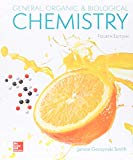
Concept explainers
(a)
Interpretation:
The chiral center (if any) ofthe following moleculeshould be labeled and identified:
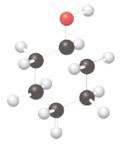
Concept Introduction:
Chirality is the presence of an asymmetric carbon center in a molecule and a molecule which contains a chiral center cannot superimpose on its mirror image.
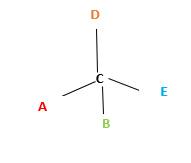
In the above diagram, where C is the chiral center/ asymmetric carbon center.
A, B, D, E are four different
(b)
Interpretation:
The chiral center (if any) of the following molecule should be labeled and identified:
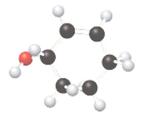
Concept Introduction:
Chirality is the presence of an asymmetric carbon center in a molecule and a molecule which contains a chiral center cannot superimpose on its mirror image.
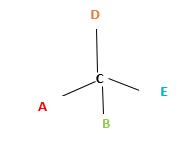
In the above diagram, where C is the chiral center/ asymmetric carbon center.
A, B, D, E are four different functional groups.
Want to see the full answer?
Check out a sample textbook solution
Chapter 15 Solutions
Loose Leaf for General, Organic and Biological Chemistry with Connect 2 Year Access Card
- Specify whether the configuration of the chirality center in the structure is R or S. (Other terms used for chirality center include chiral center, stereocenter, and stereogenic center.) ball & stick ♥ + labelsarrow_forward(a) assign R or S configuration to each chiral center, (b) Which compound are enantiomers? (c) Which compounds are diastereomers?arrow_forwardLabel each compound as chiral or achiral.arrow_forward
- There are eight chirality centers in the following molecule. Identify each asymmetric carbon atom by clicking on the circled carbons that are chiral. HOarrow_forwardA) ОН B) HO. Molecule A is achiral and molecule B is chiral Molecule A is chiral and molecule B is achiral Both molecules are achiral. Both molecules are chiral.arrow_forwardAlcohol groups can be chiral. Identify the correct label for the stereochemical center bonded to the hydroxyl group. ОН A) R B) S C) E D) Z E) This compound is not chiral.arrow_forward
- Locate the stereogenic centers in each compound. A molecule may have one or more stereogenic centers. Gabapentin enacarbil [part (d)] is used to treat seizures and certain types of chronic pain.arrow_forwardHow many carbon chirality centers does the molecule possess?arrow_forwarda) HO OH Molecule 5 is achiral has an enantiomer has at least one chiral diastereomer contains at least one R chiral center has a meso diastereomer b) Molecule 6 is achiral has an enantiomer has at least one chiral diastereomer contains at least one R chiral center has a meso diastereomer Ph Molecule 7 is achiral has an enantiomer has at least one chiral diastereomer contains at least one R chiral center has a meso diastereomerarrow_forward
- 8. Assign each chiral carbon as R or S in compound-A. Draw the mirror image of compound-A and assign configuration to each chiral carbon. (note that the dotted line represents the mirror). H₂N S OH Compound A CH3 CH3 mirror CH3 CH 3 Mmok NHZarrow_forwardCount the chirality centers in each molecule below. CHO CH, ndete O 4 chiral centers O3 chiral centers O1 hiral centerarrow_forwardIdentify the configuration of each chiral center in the following compound Chiral center locations: Configuration(s):arrow_forward
 Organic Chemistry: A Guided InquiryChemistryISBN:9780618974122Author:Andrei StraumanisPublisher:Cengage Learning
Organic Chemistry: A Guided InquiryChemistryISBN:9780618974122Author:Andrei StraumanisPublisher:Cengage Learning
